
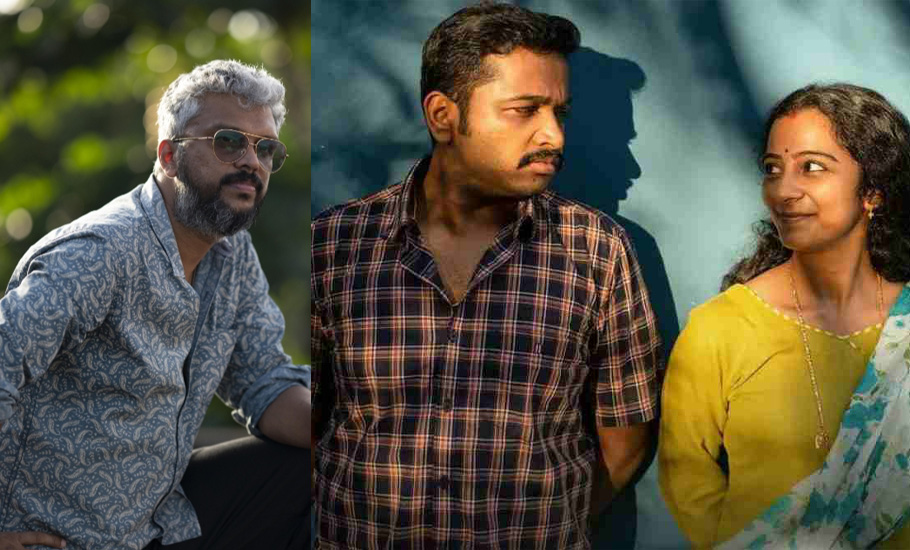
Jaya Jaya Jaya Jaya Hey: Why director Vipin Das takes a light approach to a dark subject
Jaya Jaya Jaya Jaya Hey director speaks about the making of the Malayalam blockbuster — the story, the casting, the subtle humour, and why it was set in Kollam

Call it comedy or dramedy, Jaya Jaya Jaya Jaya Hey, pulls no punches.
As director Vipin Das says — in a long chat with The Federal — irrespective of the genre, the 2022 Malayalam film has hit where it has to.
At first glance, the film, which talks about domestic abuse, marital torture and misogyny, may look inapposite or even inane in a progressive state like Kerala, but the age-old fissures come alive once the façade is chiselled deep.
“Even I had my doubts about the timing of the film or the period which is set in,” says Vipin Das. “The situation is relatively better in some urban landscapes, but the more rural you go, the more such horrid stories emerge. The abusive husband character, named Rajesh, is a chromosome of multiple people we have collated from our own circles and outside.”
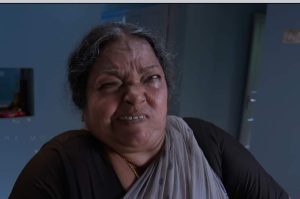
Most characters, it does seem, are sporadically picked up from households, with theatre artist Kudassanad Kanakam (in picture) delivering one of the finest performances (as Rajesh’s mother) in Malayalam cinema last year.
Quite strategically, the makers have placed Jaya Jaya Jaya Jaya Hey in Kollam, a place where what many in hushed tones say is the Ian Bothamish “kind of place to send your mother-in-law for a month, all expenses paid”. Uncharitable as it may sound, Kollam is mostly in the news for all the wrong reasons and is probably the most ‘trolled’ district in Kerala.
But Vipin says that is no reason to have the story placed in Kollam; what prompted him was a cashew allegory he has been so fond of since childhood. (Details below in interview)
It has been nearly three months since the film was released, but Vipin says that calls and messages have not stopped yet — mostly from women, even outside of Kerala.
The recent OTT release (on Hotstar) has made the film, starring Darshana Rajendran and Basil Joseph, a talking point across the country. Incidentally, the film is still running in multiplexes, having amassed Rs 50 crore from the box office.
Over to Vipin Das. (Brace yourself for spoilers)
Probably a wrong query to begin with. Could Jaya Jaya Jaya Jaya Hey have been a full-blown serious film?
It could have been, but if it were, it would not have worked to the extent it has now. At the end of the day, a film is considered successful [only] if it is lapped up by all and worked commercially. Let me tell you, the first draft of the film was a totally different one — there was no place for humour or songs and other light-hearted stuff. Then we decided to get it tweaked, purely for commercial reasons. Though the basic content remained the same, the approach had to be different. And we firmly believe the film worked big time at the box office — it did exceed all our expectations — because of that decision. So, the answer, to your query, is ‘no’.
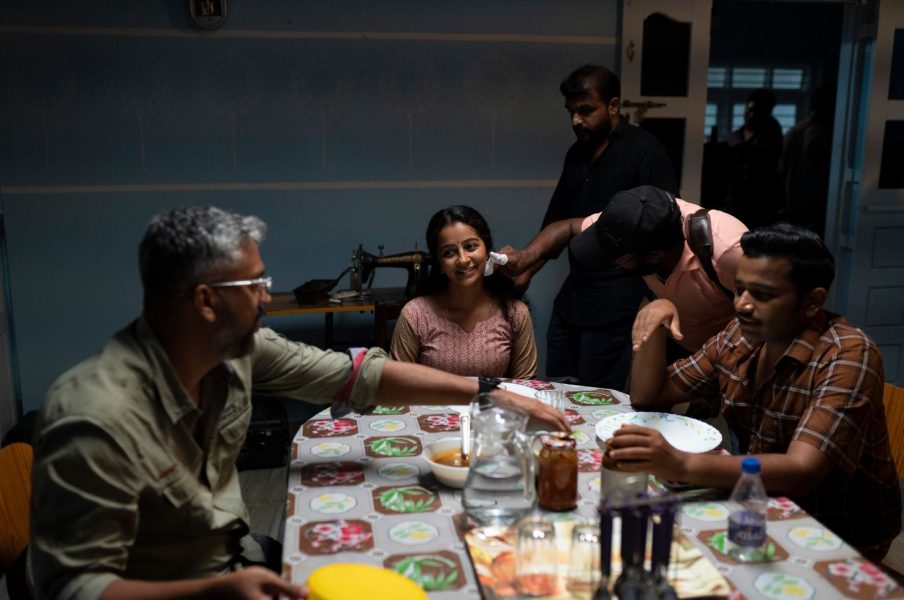
Again, many felt the climax fight was too unrealistic — and contrived.
Not at all. Without that climax, again, the film would not be complete. When the young woman (Darshana aces as Jaya), realises that Rajesh is incorrigible, she goes for the kill, literally. In the end, the latter has been virtually reduced to zero — not just physically, but in every sense. Also, she becomes smarter, financially independent and emerges as a stronger person.
When a young guy, or old, goes on a fighting spree, I don’t hear people saying it is unrealistic. Here, a young woman, having trained herself in some sort of martial arts, is hitting back; it does not matter if there is an element of disbelief. Plus, thematically, she is telling everyone not to take her for a ride. The real fight is not just with the husband, but with anyone who is abusive.
Also Read: Mangaluru Days: Why Kannada director Raj B Shetty is the talk of the country
Unquestionably, the issue is too serious for Kerala society, in particular, to ignore. What made you decide that you need to tell the story? Was it the horrid, 2021 Vismaya case [the suicide of a 24-year-old Ayurveda doctor in Kollam after dowry harassment] or any other personal incident you encountered with?
The thread had been lying with me for a long time, having seen many such incidents in the immediate vicinity. In most cases, it’s considered quite normal. But there has to be a line where the woman has to decide ‘enough is enough’. So, where does one draw that line and what next if the woman decides ‘enough is enough’? This had been playing in my mind for long, and that’s how the whole sequencing started.
Also Read: Why Malayalam filmmaker Sathyan Anthikad is not rattled by RRR or KGF
Yes, the Vismaya incident was too horrid not to get influenced by. That is where I firmly believe parents and siblings too have a major role to play in such situations. Through Jaya Jaya Jaya Jaya Hey, that is what we are trying to say: the whole thing starts right from childhood, not just after the wedding. So, the underlying focus of our film is all about parenthood, though the story tells the travails of a young, hapless woman. There are many Rajeshs and Jayas scattered all over the place.
How much of Rajesh is there in you? Have you ever thought about it?
(Laughs) As I have said, there are Rajeshs all around. Some traces, somewhere, perhaps in me too.
The Great Indian Kitchen, too, became a national talking point. At any point did you think that your film may no longer be relevant?
Again, The Great Indian Kitchen forced us to rework some portions, especially the kitchen sequences. In fact, certain portions were quite relevant, but then it would have looked repetitive. Our initial draft had many significant sequences planned in the kitchen.
Curiously, you have placed the story in Kollam, probably a district now known for most macabre incidents in Kerala.
Hailing from Thiruvananthapuram, neighbouring Kollam is a familiar place. As we all know, Kollam is in the news for all wrong reasons, but we placed the film there only because of the (once) thriving cashew industry there. The cashew-crushing sequence was an allegory I was fond of since childhood. [Check out the stellar, juxtaposed sequences in the film]. If not for cashew, I would have placed the film in Thiruvananthapuram only. Besides, it really helped that the co-writer (Nashid Famy) of the film is from the Kollam-Thiruvananthapuram border. Let me add, some of the sequences were shot near Vismaya’s home as well.
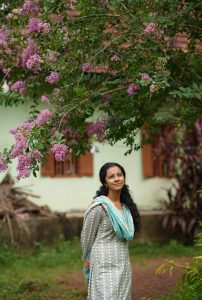
The horror part apart, it was refreshing to see a film entirely shot in Kollam with its unique words, dialects and behavioural pattern. You had even shot at the most famous restaurant in Kollam district.
Frankly, Kollam was fun. We stayed, studied, and researched Kollam for almost a year before starting the shoot. Every nook and corner of the district was covered just to get a feel of it. The Ezhuthani Hotel [known for its red-hot mutton curry, porotta and rustic cakes] sequence was planned well so that there was no crowd disturbance.
The writing reminded many of 1980-90s Malayalam films – something the new-age Malayalam filmmakers try to avoid.
Needless to say, we have all grown up watching those old Malayalam gems. Many a time, I use those films as reference points, more than say, inspiration.
There is a school of thought which believes Malayalam cinema is turning overtly political. Some say they miss the good old days of simple, unpretentious fun films.
I personally don’t think there is an overdose of politics in our films. What is essentially being made is what people discuss, and what contemporary times demand. There is a certainly huge demand which is evident from the responses and feedback. More importantly, you need courage to tell such stories and make films, which may not be possible in many other industries. It’s also the reflection of the freedom we enjoy. Let it last.
You were heard saying Jaya Jaya Jaya Jaya Hey could get outdated over the years.
Yes, I believe everything changes with time. What was politically relevant once may not be the same now. Some of our most celebrated films look hollow now, once seen through a political prism. That way, a time will come when they may say Jaya Jaya Jaya Jaya Hey is not a politically correct film. Violence, in any case, is certainly not the answer.
Also read: Malayalam cinema took maximum advantage of OTT: SS Rajamouli
What stood out was the casting – from Darshana to Basil to Kudassanad Kanakam. Tell us about the casting process.
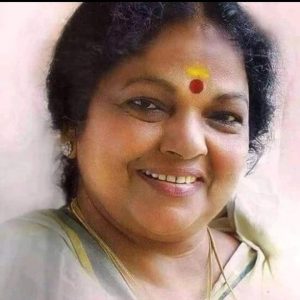
Basil came first, and yes, he was a bit apprehensive about whether he could play his part to perfection. Darshana was Basil’s suggestion. For Basil’s mother’s role, I wanted someone who could act like actress Meena [Thalayanamanthram, Meleparambil Aanveedu], and when Kudassanad Kanakam did the audition, she almost instantaneously reminded me of the old actress. Added advantage was her voice modulation and there was no second choice. Likewise, every character was hand-picked. Sudheer Paravoor [who played Darshana’s uncle] was another actor who drew great applause. So was Azeez Nedumangad.
You said Basil was apprehensive. How did you make him act in such a seemingly easy but tough role, given his look and image? At any stage were you worried that Basil might not be able to pull it off?
For the role, I wanted someone like Sreenivasan and Basil was quite tailor-made for it. Basil and I go back a long way, and all it needed was just extra prodding, and Basil conceded. We are close friends and Basil could not have said no in any case. As far as I am concerned, I was 100 per cent sure Basil would pull it off and I believe we are yet to see his potential. He should emerge as one of the bankable faces of Malayalam cinema.
And Darshana? How did she fit into the whole scheme of things?
Oh, first of all, she is a bundle of energy, which is quite infectious. It was no easy role per se, but she did it with ease. We had some extensive training for those high-octane action sequences and she was really quick in grasping all that. That said, I must say she keeps reinventing herself, with a penchant for learning new things, every single day. One of the busiest, most active persons I have met for sure.
Also read: Amal Neerad interview: On Mammootty, Bheeshma Parvam and Bilal
You seemed to have moved on already by announcing Guruvayoor Ambalanadayil, your next project, starring Prithviraj and Basil Joseph. What is brewing?
It’s going to be a comedy caper, based on a wedding that happens in Guruvayoor. It’s too early to talk about other details of the film, which will be something in the mould of Siddhique-Lal’s Godfather. A total fun ride. Let me add, there is no politics involved there.
Is Jaya Jaya Jaya Jaya Hey the turning point in your career?
I think Antakshari (streaming on Sony Liv) was the biggest moment in my career.


